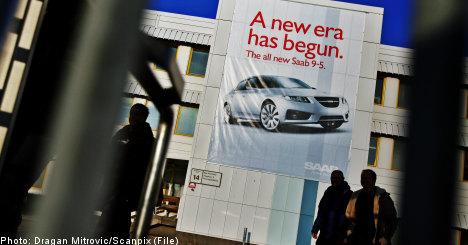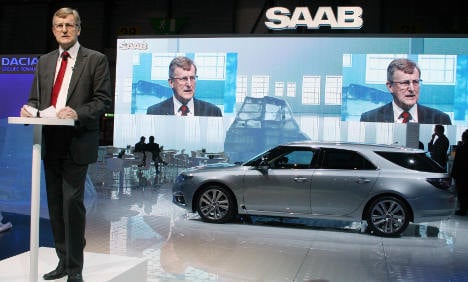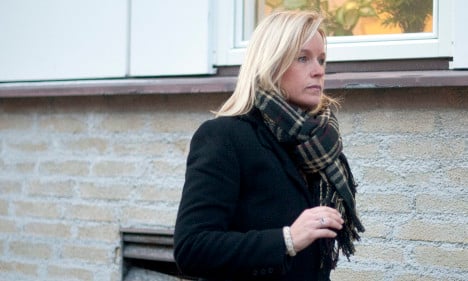The partnership with the Hawtai followed an announcement on Monday that Saab had secured short-term cash of €30 million ($44 million) to restart production within a week.
The agreement secures funding of €150 million for the cash-strapped Swedish firm. The deal is a joint venture and spans production, technology and distribution, Spyker Cars said in a statement.
“Our partnership with Hawtai secures our medium-term financing and this gives Saab Automobile a chance to enter the Chinese market. This also establishes a technology partnership with a strong Chinese car manufacturer,” Saab chairperson Victor Muller said.
Hawtai is set to invest €120 million in Spyker Cars which in return will secure a maximum of 29.9 percent of the shares in the firm.
The remaining €30 million will be provided in the form of convertible loans for a period of six months and at an interest rate of 7 percent.
The confirmation of the partnership sent Spyker Cars’ stock up 18 percent on the Amsterdam stock exchange on Tuesday morning.
“With Hawtai’s technology for clean diesel engines and its production capacity as well as the firm’s ambitious development programme we have found the right partner for the development of Saab and build a strong cooperation,” Muller said.
Richard Zhang, Hawtai vice chairperson, in turn regards the Saab brand as an “icon” among cars.
“This gives us access to innovative technology and an international network which would otherwise have taken us decades to build up. This is a big day for a relatively young company which was formed only ten years ago,” he said.
According to a Saab source cited by the Dagens Industri daily, Hawtai will begin manufacturing Saab cars in a factory in inner Mongolia.
The partnership marks the second time in under a year that a Chinese carmaker has invested in a Swedish carmaker.
In August last year, China’s Geely bought Sweden’s Volvo Cars, previously owned by Ford.
Speaking to reporters by phone from Beijing, Spyker chief Victor Muller said the partnership would be beneficial to both parties, just like acquiring Volvo was favorable to Geely.
He however stressed the deal was a partnership and not an acquisition, and thus very different.
Described by Spyker as an “agreement on strategic alliances partnership with respect to manufacturing, technology and distribution,” Tuesday’s deal comes a day after Spyker said it had secured a short-term cash injection of €30 million to restart production within a week.
“Saab is now well financed, it has secured its short and mid-term financing,” Muller said. “That puts the liquidity crunch that the company went through in the month of April to bed.”
The deal is still subject to approval and conditions including the consent of Chinese government agencies, the European Investment Bank and the Swedish National Debt office, Spyker said.
Muller told reporters he expected regulatory approvals to be obtained in six to twelve weeks and no problems in getting approval from the European Investment Bank, which loaned the carmaker money, were anticipated.
If it goes through, the partnership plans for Saabs destined to the Chinese market to be built at a Hawtai plant in China starting in 2013.
“Production in China is for China, and production in Trollhättan (in western Sweden) is for the rest of the world. There is no cannibalism here in any way, shape, or form,” Muller told reporters, adding “the Saab 9-3 would be the first car that would be eligible for such local production.”
“There is a tremendous benefit in sharing technologies,” Muller said, adding the partnership would allow Saab to take advantage of Hawtai’s distribution network, which could pave the way for the import in China of Saabs made in Sweden.
That would boost overall sales, he said, stressing it would not decrease production in Sweden.
Yang Jian, a China-based writer for trade publication Automotive News, described the transaction as a “win-win” situation.
“Spyker gets the money it needed and Hawtai gets access to Saab technology. Hawtai needs the help of an international brand, he said, according to Swedish news agency TT, describing Hawtai as a “small and fairly unknown company in China.”
Hawtai has the capacity to produce 350,000 vehicles, 300,000 engines and 450,000 automatic transmissions per year, Spyker said.
In Sweden, Enterprise Minister Maud Olofsson, who previously said Saab would not receive any help from the state, applauded the partnership.
“I’ve said the whole time that for it to work in the long term there had to be private interests ready to invest the money,” she said.
Saab union representatives also reacted positively.
“We have both the news that came yesterday about a short-term solution that will allow us to start production again, and now this for the longer term and it is obviously extremely good news for us,” said Håkan Schött of the Metall
union.




 Please whitelist us to continue reading.
Please whitelist us to continue reading.
Member comments